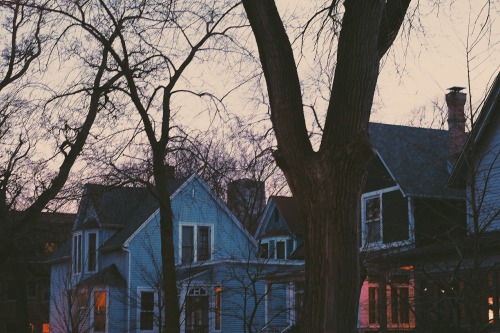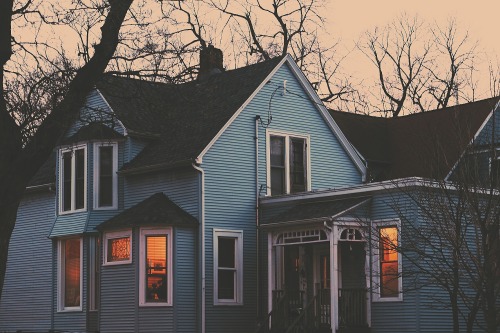The Development Of Lynch's Body Of Work Is Informed By A Realist's Optimism That There Is An Exit From
The development of Lynch's body of work is informed by a realist's optimism that there is an exit from the linguistic labyrinth and that this exit is richly available to us [...] His use of language—and of cinematic vocabulary—suggests that, once we understand that we ourselves have created cultural forms and that they only have the meaning we give them, we are free to understand the forces in the universe that are truly larger than we are and how they connect us to a greater reality.
Martha Nochimson, The Passion of David Lynch
More Posts from Portraitofglue and Others

ending a story in other languages
kurdish: “my story went to other homes, god bless the mothers and fathers of its listeners” (Çîroka min çû diyaran, rehmet li dê û bavê guhdaran.)
greek: “and they lived well, and we lived better” (και ζήσανε αυτοί καλά και εμείς καλύτερα)
afrikaans: “whistle whistle, the story is done” (fluit fluit, die storie is uit)
goemai: “my tale has finished, (it) has returned to go (and) come home.” (tamtis noe lat / dok ba muaan yi wa)
amharic: “return my story and feed me bread” (ተረቴን መልሱ አፌን በዳቦ አብሱ::)
bengali: “my story ends and the spinach is eaten by the goat” (aamaar kothati furolo; Notey gaachhti murolo) *means something is irreversibly ended because goats eats herbs from the root
norwegian: “snip snap snout, the tale is finished” (snipp snapp snute, så er eventyret ute”
polish: “and i was there [at the wedding] too, and drank mead and wine.” (a ja tam byłem, miód i wino piłem.)
georgian: “disaster there, feast here… bran there, flour here…” (ჭირი – იქა, ლხინი – აქა, ქატო – იქა, ფქვილი – აქა)
hungarian: “this is the end, run away with it” (itt a vége, fuss el véle)
turkish: “lastly, three apples fell from the sky; one for our story’s heroes, one for the person who told their tale, and one for those who listened and promise to share. And with that, they all achieved their hearts’ desires. Let us now step up and settle into their thrones.” (Gökten üç elma düşmüş; biri onların, biri anlatanın, diğeri de dinleyenlerin başına. Onlar ermiş muradına, biz çıkalım kerevetine.)
“In cyclamen flowers the red of summer combines with the blue of autumn into a pinkish purple, and their fragrance recaptures all the sweetness of the past; but as you inhale it for longer, there is a quite different smell behind it : that of decay and death.”
— Marlen Haushofer, The Wall (tr. by Shaun Whiteside)
currently reading:
except for palestine: the limits of progressive politics by marc lamont hill & mitchell plitnick
palestine: a socialist introduction, ed. by sumaya awad & brian bean
on my non-fiction reading list:
the question of palestine, edward said
the hundred years’ war on palestine, rashid khalidi
palestinian identity, rashid khalidi
ten myths about israel, ilan pappé
the ethnic cleansing of palestine, ilan pappé
on palestine, noam chomsky & ilan pappé
blaming the victims: spurious scholarship and the palestinian question, ed. by edward said & christopher hitchens
the case for sanctions against israel, ed. by audrea lim
justice for some: law and the question of palestine, noura erakat
freedom is a constant struggle, angela davis
the butterfly's burden, mahmoud darwish
on my fiction reading list:
minor detail, adania shibli
enter ghost, isabella hammad
salt houses, hala alyan
men in the sun, ghassan kanafani
It reminds me of a house that teens would sneak into on a warm Autumn’s day


this blue house feels so cozy yet i have never been inside it
-
 cannibalismss reblogged this · 5 days ago
cannibalismss reblogged this · 5 days ago -
 seqoya liked this · 6 days ago
seqoya liked this · 6 days ago -
 oliviermiraarmstrongs reblogged this · 1 week ago
oliviermiraarmstrongs reblogged this · 1 week ago -
 ding-a-linguistics reblogged this · 1 week ago
ding-a-linguistics reblogged this · 1 week ago -
 the-attic-to-the-left liked this · 1 week ago
the-attic-to-the-left liked this · 1 week ago -
 twofacedsinister liked this · 1 week ago
twofacedsinister liked this · 1 week ago -
 nervous-tumbleweed reblogged this · 2 weeks ago
nervous-tumbleweed reblogged this · 2 weeks ago -
 rose-coloured-girl reblogged this · 2 weeks ago
rose-coloured-girl reblogged this · 2 weeks ago -
 prettymachine reblogged this · 2 weeks ago
prettymachine reblogged this · 2 weeks ago -
 etudoacabou reblogged this · 2 weeks ago
etudoacabou reblogged this · 2 weeks ago -
 etudoacabou liked this · 2 weeks ago
etudoacabou liked this · 2 weeks ago -
 luarenah reblogged this · 2 weeks ago
luarenah reblogged this · 2 weeks ago -
 kris-rey liked this · 2 weeks ago
kris-rey liked this · 2 weeks ago -
 pavelsmerdyakov reblogged this · 2 weeks ago
pavelsmerdyakov reblogged this · 2 weeks ago -
 macabrevampire liked this · 2 weeks ago
macabrevampire liked this · 2 weeks ago -
 flotationtoywarnings reblogged this · 2 weeks ago
flotationtoywarnings reblogged this · 2 weeks ago -
 xxskullbitchesxx liked this · 2 weeks ago
xxskullbitchesxx liked this · 2 weeks ago -
 wreckless-intents liked this · 2 weeks ago
wreckless-intents liked this · 2 weeks ago -
 umbratheshadowfamiliar liked this · 2 weeks ago
umbratheshadowfamiliar liked this · 2 weeks ago -
 ajfbgkdjfg liked this · 3 weeks ago
ajfbgkdjfg liked this · 3 weeks ago -
 echocollision liked this · 3 weeks ago
echocollision liked this · 3 weeks ago -
 mjm42 liked this · 3 weeks ago
mjm42 liked this · 3 weeks ago -
 awesomgrlgr8job liked this · 3 weeks ago
awesomgrlgr8job liked this · 3 weeks ago -
 aposthaste reblogged this · 3 weeks ago
aposthaste reblogged this · 3 weeks ago -
 neopythagorean liked this · 3 weeks ago
neopythagorean liked this · 3 weeks ago -
 bitterpill liked this · 3 weeks ago
bitterpill liked this · 3 weeks ago -
 anatomicaltheater reblogged this · 3 weeks ago
anatomicaltheater reblogged this · 3 weeks ago -
 anatomicaltheatre reblogged this · 3 weeks ago
anatomicaltheatre reblogged this · 3 weeks ago -
 anatomicaltheatre liked this · 3 weeks ago
anatomicaltheatre liked this · 3 weeks ago -
 dollwithkaleidoscopeeyes reblogged this · 3 weeks ago
dollwithkaleidoscopeeyes reblogged this · 3 weeks ago -
 antagonisthot liked this · 3 weeks ago
antagonisthot liked this · 3 weeks ago -
 aizoenoria liked this · 3 weeks ago
aizoenoria liked this · 3 weeks ago -
 chongito liked this · 3 weeks ago
chongito liked this · 3 weeks ago -
 mullberry reblogged this · 3 weeks ago
mullberry reblogged this · 3 weeks ago -
 mullberry liked this · 3 weeks ago
mullberry liked this · 3 weeks ago -
 superbnutluminary liked this · 3 weeks ago
superbnutluminary liked this · 3 weeks ago -
 dancetillthemorningsun reblogged this · 3 weeks ago
dancetillthemorningsun reblogged this · 3 weeks ago -
 dancetillthemorningsun liked this · 3 weeks ago
dancetillthemorningsun liked this · 3 weeks ago -
 laevateinn liked this · 3 weeks ago
laevateinn liked this · 3 weeks ago -
 sadrits liked this · 3 weeks ago
sadrits liked this · 3 weeks ago -
 sorealist liked this · 3 weeks ago
sorealist liked this · 3 weeks ago -
 3amchillin reblogged this · 3 weeks ago
3amchillin reblogged this · 3 weeks ago -
 3amchillin liked this · 3 weeks ago
3amchillin liked this · 3 weeks ago -
 edgeofstorms reblogged this · 3 weeks ago
edgeofstorms reblogged this · 3 weeks ago -
 ua93 liked this · 3 weeks ago
ua93 liked this · 3 weeks ago -
 outrockoakley reblogged this · 3 weeks ago
outrockoakley reblogged this · 3 weeks ago -
 outrockoakley liked this · 3 weeks ago
outrockoakley liked this · 3 weeks ago -
 houndaughter liked this · 3 weeks ago
houndaughter liked this · 3 weeks ago -
 kyraspem liked this · 3 weeks ago
kyraspem liked this · 3 weeks ago








